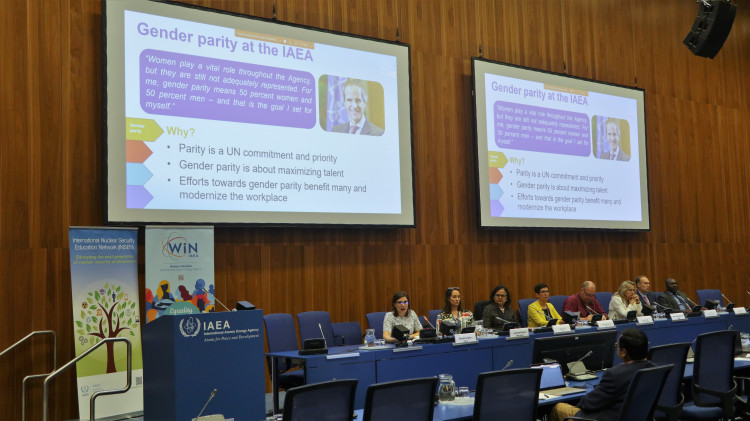Aligning the available teaching materials on nuclear security with the latest IAEA guidance is an important stepping stone in the path to excellence in nuclear security education. This objective is among the key areas of work of the International Nuclear Security Education Network (INSEN), a partnership mechanism that facilitates the collaboration of the IAEA with educational and research institutions.
“Education and training in the area of nuclear security is an essential component of the IAEA’s nuclear security programme,” said Elena Buglova, Director of the IAEA Division of Nuclear Security, during the INSEN Annual meeting convened in Vienna in July. “By sharing experiences and good practices, INSEN members can further enhance their capacities in order to effectively contribute to strengthening nuclear security regimes through a sustainable nuclear security education.”
Established in 2010, INSEN has 204 members and 13 observers from 72 countries. Their work includes the development of peer-reviewed teaching materials; faculty development in different areas of nuclear security; joint research activities; student exchange programmes; academic theses supervision and evaluation; knowledge management; promotion of nuclear security education; and other related activities.
During their recent annual meeting, 94 participants representing 45 INSEN member countries came together to review the implementation progress of the Network’s Action Plan to identify and evaluate the activities for the coming year.
The exchanges also covered topics such as the role of research in enhancing nuclear security, international collaboration, capacity building as well as gender equality.
“INSEN utilizes feedback received from its members and other international experts through meetings, personal communication, and surveys to understand the evolving nature of nuclear security, and assess the effectiveness of nuclear security education,” said Alpana Goel, Director of Amity Institute of Nuclear Science and Technology from India and Chair of INSEN.
The revision of existing nuclear security teaching materials according to the IAEA publication “Model Academic Curriculum in Nuclear Security” published in August 2021, is INSEN’s main focus. “Since 2010, when the IAEA published its first guidance for a Master of Science programme in nuclear security, more topics have gained importance; information and computer security and small modular reactors are some examples,” said Goel, adding that the revision work for about half of the teaching materials is now complete.
In parallel, participants discussed content relating to an IAEA publication that addresses how to ensure the sustainability and impact assessment of nuclear security education. Participants learned that INSEN finalized the publication’s outline earlier this year and currently collecting lessons learned, good practices and case studies from INSEN members.






